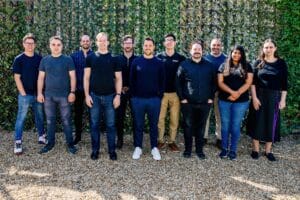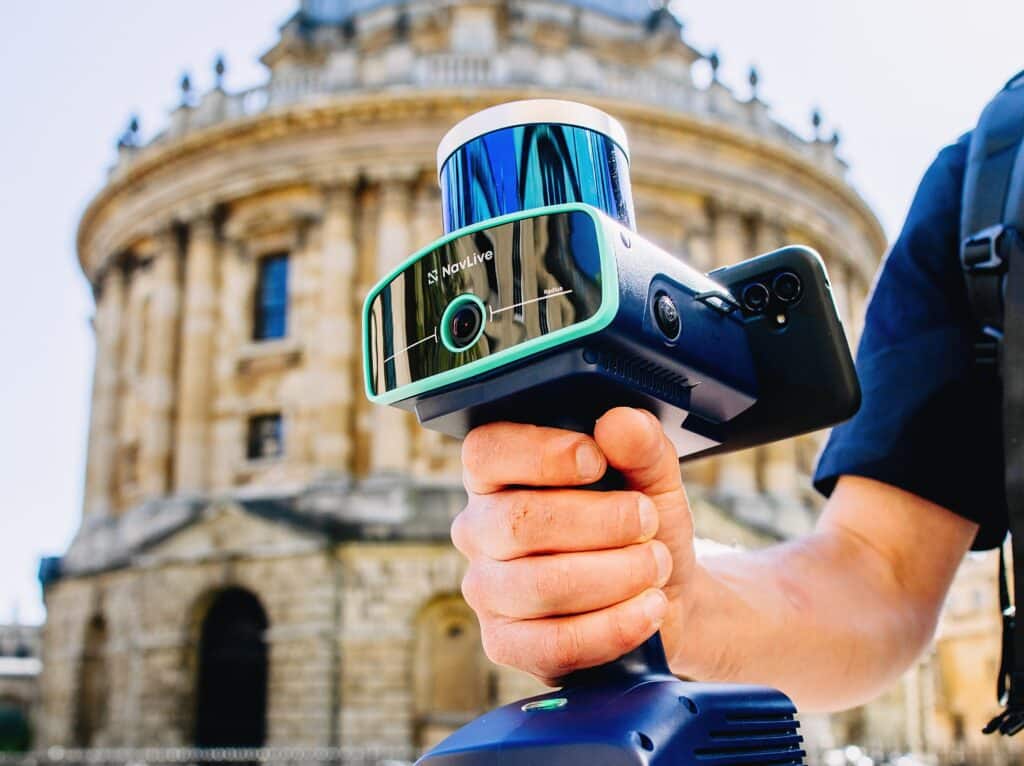NavLive, a deep tech spin-out from the University of Oxford, is revolutionising the construction industry with its real-time 3D mapping technology, thanks to vital early-stage investment from Oxford Innovation Finance and support from sister company, Oxford Innovation Space.
Founded by Dr David Wisth in 2022, NavLive builds on five years of research at the Oxford Robotics Institute. Research that led to the development of the company’s groundbreaking handheld scanner, which uses edge AI and LiDAR to instantly generate high-precision 2D and 3D site scans, streamlining workflows for architects, engineers, and construction professionals.

“The technology was born out of years of research, and we knew there was huge demand for quick, accurate 3D mapping in the construction industry,” said Dr David Wisth, Chief Technology Officer at NavLive. “Our game-changing scanner allows for faster, real-time measuring – saving both time and money.”
As a tech start-up, NavLive required significant capital to commercialise its technology and turned to Oxford Innovation Finance, which runs one of the largest and most active angel networks in the UK. Following a successful pitch, the company raised investment through Oxford Innovation Finance as part of a wider £4m funding round, which also included a £700,000 grant awarded by Innovate UK.
David explains: “It was the first time we’d ever pitched to an angel group, but Oxford Innovation Finance made the process straightforward. We did a dry run with them beforehand and they were able to advise us on the things angels would be looking for. We received lots of great feedback, made connections with investors and raised funds.”
Oxford Innovation Space, the UK and Ireland’s largest operator of innovation centres, has also played a role in NavLive’s journey to commercial success by providing flexible workspace and tailored business support within two of its centres in Oxford. Initially based at the Grassroots centre, NavLive benefited from the close proximity to academic collaborators and fellow entrepreneurs. As the team expanded, the company moved into the Oxford Centre for Innovation, upgrading their office space three times to accommodate their growth.
“The innovation centres gave us the flexibility to grow our space as we expanded from two people to 10,” said David. “The centre teams went out of their way to support us by providing one-to-one business support, informing us of relevant grants and even allowing us to test our scanner in the building.”
 Since then, NavLive has expanded its team to 16 employees, graduated from the innovation centre to offices in Oxford and London, launched commercially, generated sales in the UK and been named as a finalist in the prestigious Trimble 0–60 Challenge 2025 – a global accelerator for early-stage startups in construction and engineering.
Since then, NavLive has expanded its team to 16 employees, graduated from the innovation centre to offices in Oxford and London, launched commercially, generated sales in the UK and been named as a finalist in the prestigious Trimble 0–60 Challenge 2025 – a global accelerator for early-stage startups in construction and engineering.
However, David and the team are just getting started. Over the next year, NavLive plans to expand into the US market and double the size of its team.
NavLive’s success underlines the importance of a collaborative approach to supporting SMEs. David concludes: “Oxford has an amazing entrepreneurial ecosystem and Oxford Innovation is a key partner for any entrepreneur. Providing space, investment and business support to start-ups, the team act as a springboard to get you to where you need to be.”
For more information on NavLive, visit www.navlive.ai
